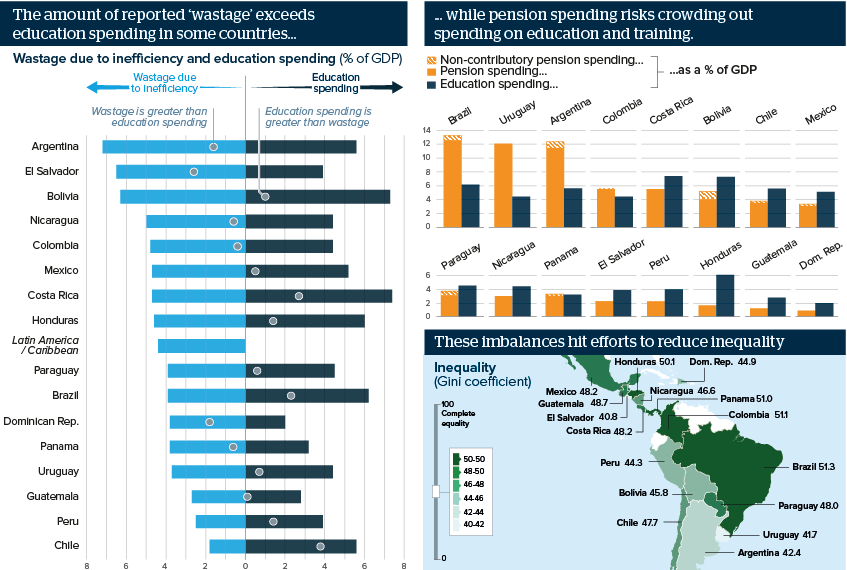Inefficiency worsens inequality in Latin America
Inefficient spending hampers efforts to reduce inequality in Latin America
Source: InterAmerican Development Bank; UN Economic Commission for Latin America and the Caribbean; World Bank; UNESCO
Outlook
Public spending reaches an average of nearly 30% of GDP in Latin America and the Caribbean, although this rises to nearly 50% in Argentina -- which also has the highest level of ‘wastage’ according to a new Inter-American Development Bank (IDB) report.
“Leakage” in procurement (both overruns and corruption), bloated public sector wages and transfers equals some 16% of total spending, or 220 billion dollars, enough to eliminate extreme poverty according to the IDB.
While greater efficiency could free up funds for education, better targeting will also be crucial. Many countries focus on tertiary rather than primary education, and there is a persistent mismatch between training and skills required. This entrenches inequality and competitiveness woes.
Impacts
- Wasteful public spending exacerbates widespread reluctance to pay taxes, cementing inequalities in the tax burden shouldered by the wealthy.
- High levels of inequality will encourage redistributive spending, potentially to the detriment of public investment.
- Rising pension demands will further cut into the funds available for education, hitting efforts to increase skills and productivity.
- Public pressure to maintain spending with immediate effects, over infrastructure and education, will obstruct long-term productivity gains.
See also
- Argentina's education woes will worsen competitiveness - Feb 24, 2020
- Latin and global populism will adopt a range of forms - Dec 4, 2019
- Prolonged unrest to compound Honduras growth slowdown - Sep 13, 2019
- Chile pension reform will not tackle retirement age - Jun 14, 2019
- Inequality progress key to aid Chile long-term growth - Jan 23, 2019
- Latin America political inequality is set to increase - Dec 12, 2018
- Chile spending commitments may hamper fiscal prudence - Oct 8, 2018
- Latin America's wealthiest untouched by redistribution - Sep 14, 2018
- More graphic analysis
